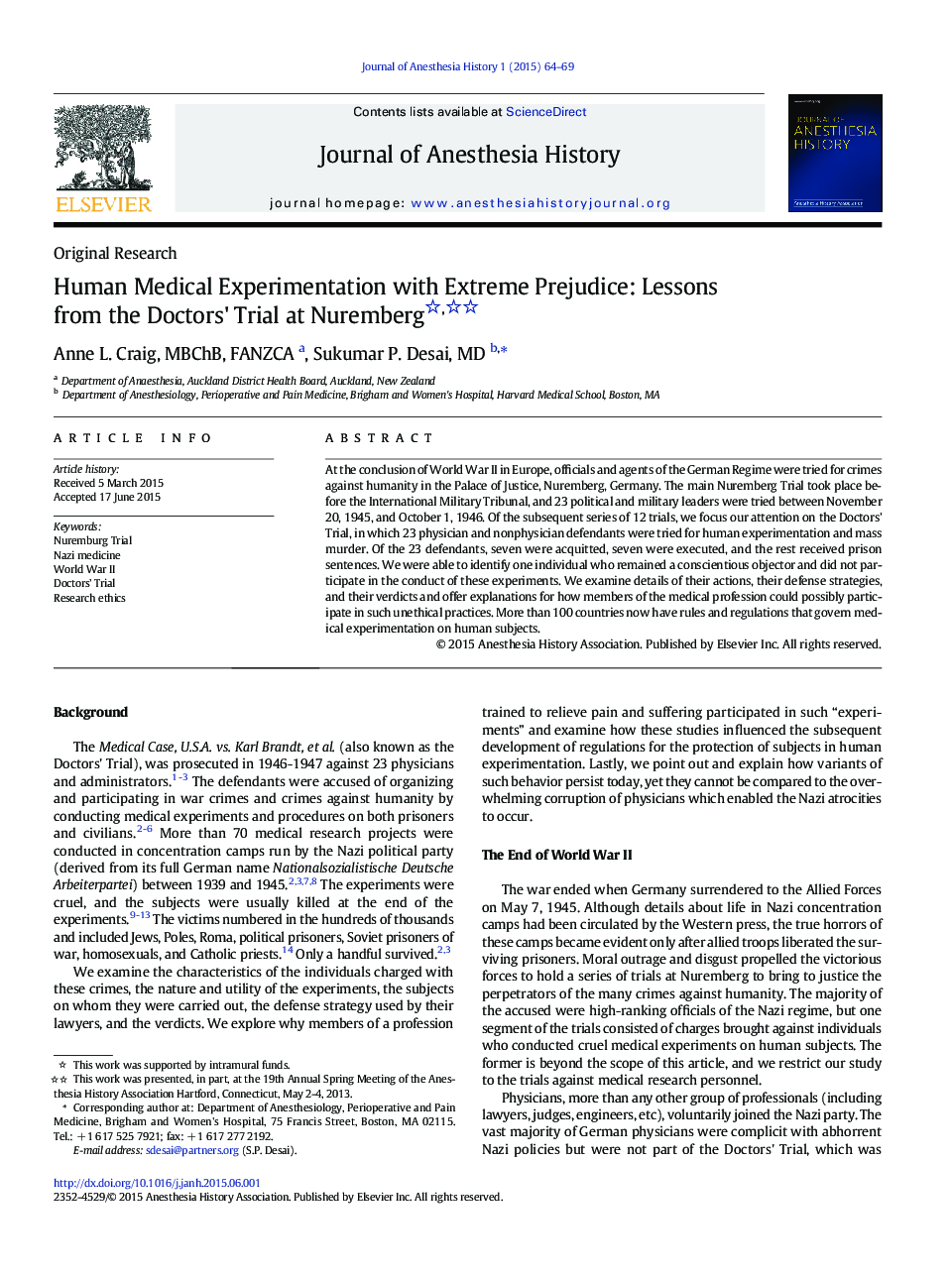| Article ID | Journal | Published Year | Pages | File Type |
|---|---|---|---|---|
| 1082312 | Journal of Anesthesia History | 2015 | 6 Pages |
At the conclusion of World War II in Europe, officials and agents of the German Regime were tried for crimes against humanity in the Palace of Justice, Nuremberg, Germany. The main Nuremberg Trial took place before the International Military Tribunal, and 23 political and military leaders were tried between November 20, 1945, and October 1, 1946. Of the subsequent series of 12 trials, we focus our attention on the Doctors' Trial, in which 23 physician and nonphysician defendants were tried for human experimentation and mass murder. Of the 23 defendants, seven were acquitted, seven were executed, and the rest received prison sentences. We were able to identify one individual who remained a conscientious objector and did not participate in the conduct of these experiments. We examine details of their actions, their defense strategies, and their verdicts and offer explanations for how members of the medical profession could possibly participate in such unethical practices. More than 100 countries now have rules and regulations that govern medical experimentation on human subjects.
